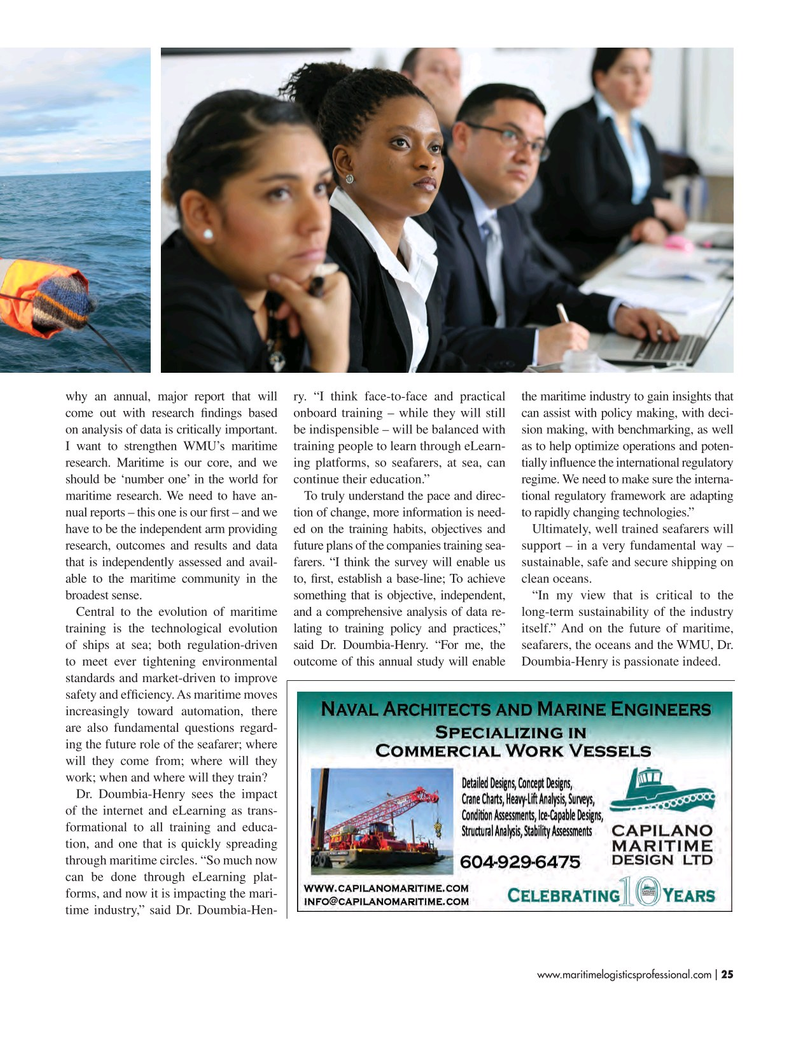
Page 25: of Maritime Logistics Professional Magazine (Jul/Aug 2017)
PORTS & INFRASTRUCTURE
Read this page in Pdf, Flash or Html5 edition of Jul/Aug 2017 Maritime Logistics Professional Magazine
why an annual, major report that will ry. “I think face-to-face and practical the maritime industry to gain insights that come out with research fndings based onboard training – while they will still can assist with policy making, with deci- on analysis of data is critically important. be indispensible – will be balanced with sion making, with benchmarking, as well
I want to strengthen WMU’s maritime training people to learn through eLearn- as to help optimize operations and poten- research. Maritime is our core, and we ing platforms, so seafarers, at sea, can tially infuence the international regulatory should be ‘number one’ in the world for continue their education.” regime. We need to make sure the interna- maritime research. We need to have an- To truly understand the pace and direc- tional regulatory framework are adapting nual reports – this one is our frst – and we tion of change, more information is need- to rapidly changing technologies.” have to be the independent arm providing ed on the training habits, objectives and Ultimately, well trained seafarers will research, outcomes and results and data future plans of the companies training sea- support – in a very fundamental way – that is independently assessed and avail- farers. “I think the survey will enable us sustainable, safe and secure shipping on able to the maritime community in the to, frst, establish a base-line; To achieve clean oceans. broadest sense. something that is objective, independent, “In my view that is critical to the
Central to the evolution of maritime and a comprehensive analysis of data re- long-term sustainability of the industry training is the technological evolution lating to training policy and practices,” itself.” And on the future of maritime, of ships at sea; both regulation-driven said Dr. Doumbia-Henry. “For me, the seafarers, the oceans and the WMU, Dr. to meet ever tightening environmental outcome of this annual study will enable Doumbia-Henry is passionate indeed.
standards and market-driven to improve safety and effciency. As maritime moves increasingly toward automation, there are also fundamental questions regard- ing the future role of the seafarer; where will they come from; where will they work; when and where will they train?
Dr. Doumbia-Henry sees the impact of the internet and eLearning as trans- formational to all training and educa- tion, and one that is quickly spreading through maritime circles. “So much now can be done through eLearning plat- forms, and now it is impacting the mari- time industry,” said Dr. Doumbia-Hen- www.maritimelogisticsprofessional.com 25
I

 24
24

 26
26
